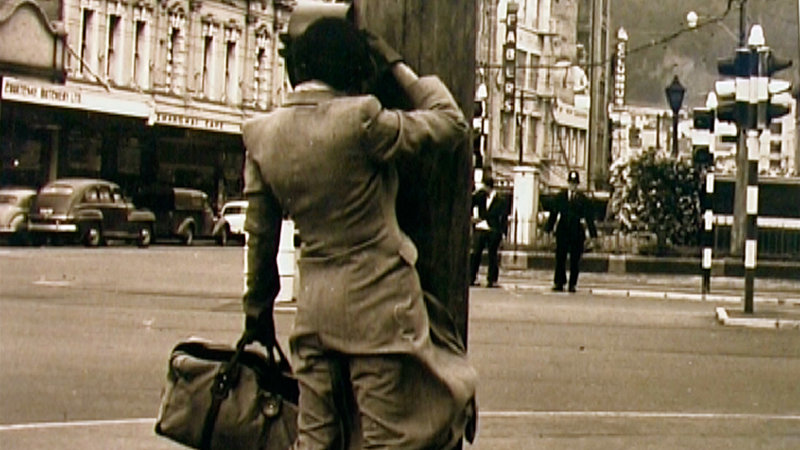
Screened as part of NZIFF 2003
The Last Post 2003
The Last Post gets into the workplace as the employees of Australasia’s last metropolitan evening daily newspaper deal with the abruptly imparted news that it’s all over. Though many long considered the demise of the Evening Post inevitable in the News Corp world , its ‘merger’ in July last year with INL’s morning daily, The Dominion, was an impressively well-managed stealthily accomplished deathblow. Ninety people lost their jobs and Wellington lost a popular defining characteristic – a folksy, lively, parochial daily that had been appearing six times a week for over 137 years and was still turning a profit.
Evening Post journalists themselves, James Hollings and Sarah Daniell, along with collaborator Dan Cleary, obtain frank responses from people they know. There’s anger, sadness, fear, camaraderie, bitterness, chipperness and a great deal of confusion. The filmmakers are so immediately onto the story that’s breaking out all around them that they’ve caught many of their subjects in the first flush of total bewilderment. None has more reason to be bewildered than the Post’s last editor, Clive Lind, newly appointed and just back from holiday in Italy, brimming with plans to stave off the rumoured executioner for at least two years. And none is more eloquently regretful than his predecessor, Suzanne Carty, whose energising championship of the paper made her something of a Wellington hero and in whom the sense of the Post’s history seems almost painfully ingrained. From the other side of the process, Tim Pankhurst, now editor of the merged Dominion Post, talks candidly about embracing the future, and tackling the complex and covert project of manufacturing change.
For Wellingtonians the insider view of an institution, INL, that colours our daily lives is likely to be a fascinating one. If the Post was deemed unfit to survive in the 21st century, the industrial culture that produced it may seem just as, well… 137 years old. It’s certainly a very top-down world. The established survivors pay their upbeat tributes to the death-defying longevity of the deceased and share the quaint habit of referring to newspapers as wives or mistresses. The less secure fret that they’ll never feel at home in another job; and the fledglings realise how much they’ve learnt from suddenly redundant older hands. Though the film provides ample opportunity to jeer at the impregnable official-speak of the ‘merger’ announcement, the predominant mood is less indignant than elegiac. Drawing on the Post’s vast photographic archives, the filmmakers dice with the upbeat themselves, revelling in the paper’s quirkiness and celebrating the community of newspaper people as they get to grips with adversity – by first talking about it. — BG